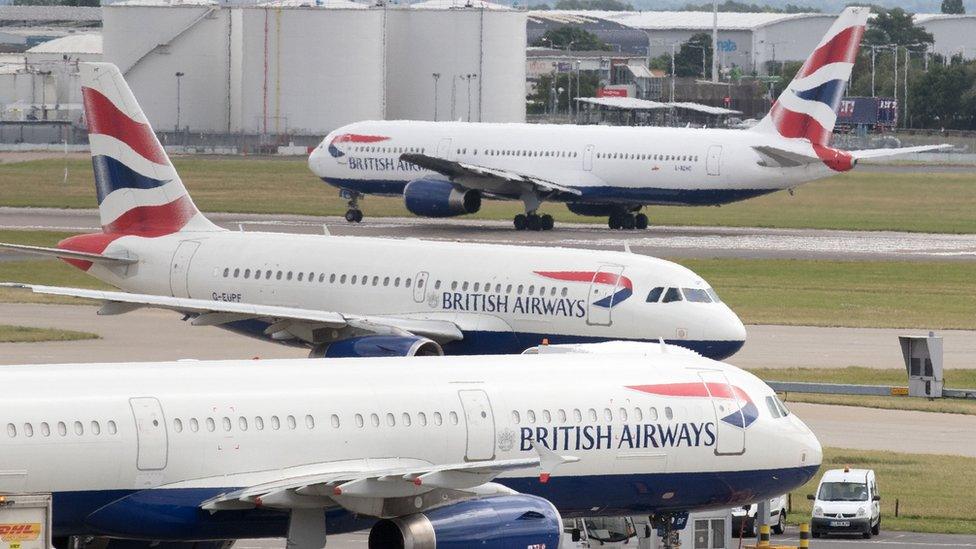British Airways pilots strike for second day over pay
- Published
'BA and pilots are both to blame'
British Airways pilots are striking for a second day in an ongoing dispute over pay and conditions.
Tens of thousands of passengers have been told not to go to airports, with the airline cancelling some 1,700 flights due to the disruption.
The pilots' union Balpa said BA management's cost-cuts and "dumbing down" of the brand had eroded confidence in the airline.
But BA chief Alex Cruz said investment in the operator had never been so big.
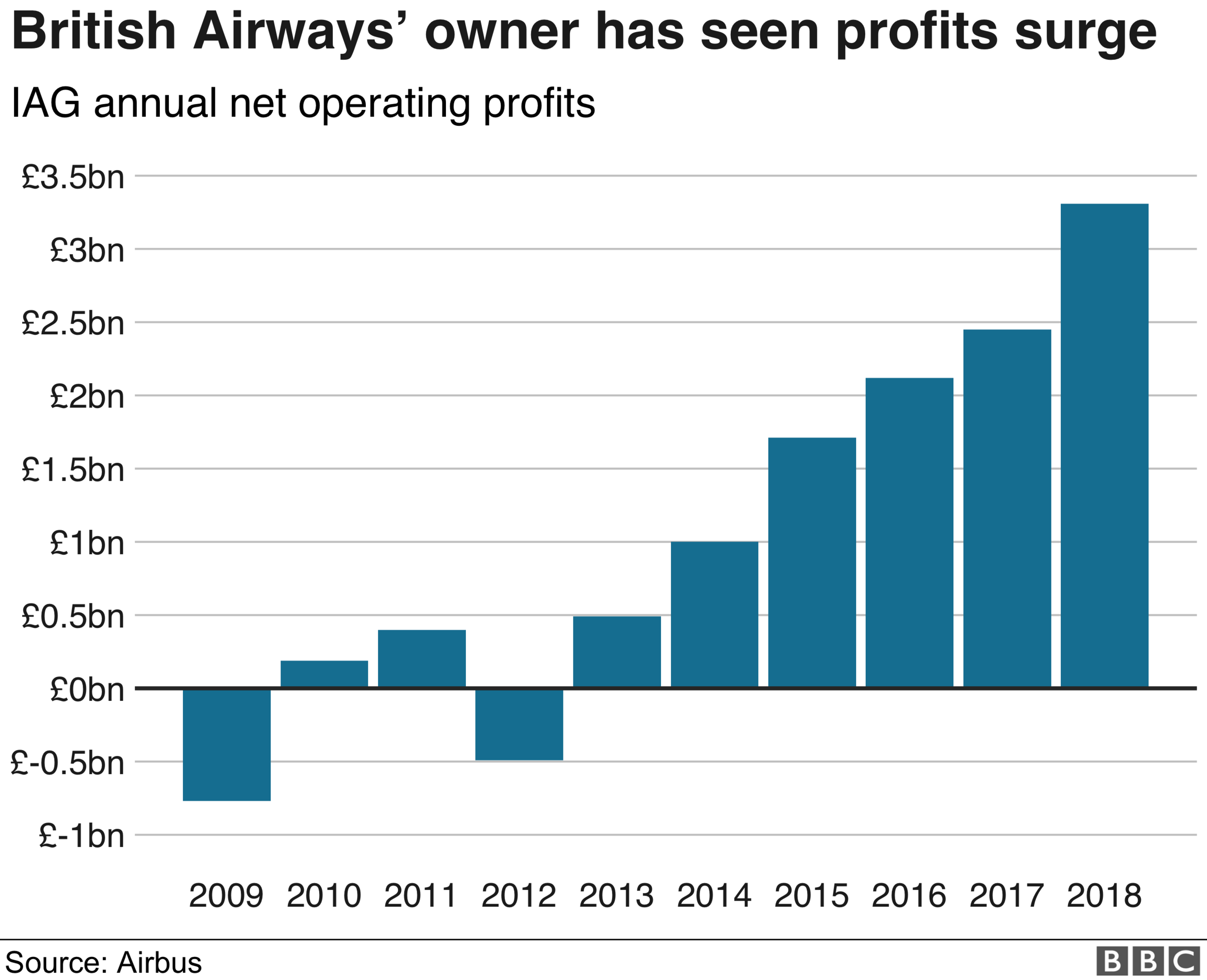
The walkout is due to end at midnight on Tuesday, although there could be additional unexpected cancellations on Wednesday.
Both sides say they are willing to hold further talks, but no date has been set. The pilots are currently scheduled to stage another strike on 27 September.
Balpa's general secretary, Brian Strutton, said: "It is time to get back to the negotiating table and put together a serious offer that will end this dispute."
But he told the BBC that while BA says publicly it is willing to talk, "in private they say they are not going to negotiate". And although the headline dispute is about pay, he said there was also deep resentment about the airline's direction.
"BA has lost the trust and confidence of pilots because of cost-cutting and the dumbing down of the brand... management want to squeeze every last penny out of customers and staff," Mr Strutton said.
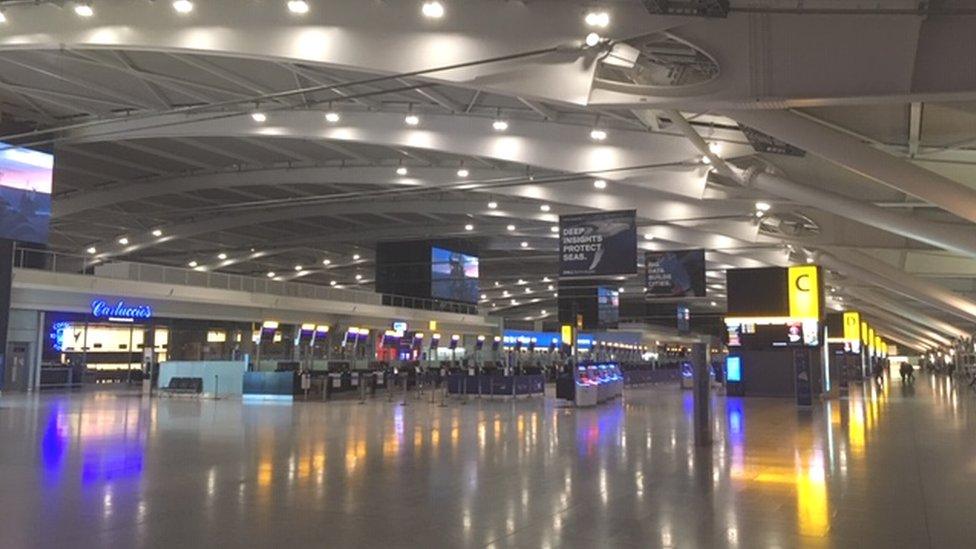
BA's Terminal 5 was deserted on Monday morning
Mr Cruz defended the airline against Mr Strutton's claim, saying it had never in its history embarked on such a big investment programme in services and training. He said the airline was "ready and willing" to return to talks with Balpa.
It is the first time BA pilots have walked out and the action could cost the airline up to £40m a day. Some 4,000 pilots are involved in the strike.
In a statement, BA said: "We understand the frustration and disruption Balpa's strike action has caused our customers. After many months of trying to resolve the pay dispute, we are extremely sorry that it has come to this.
"Unfortunately, with no detail from Balpa on which pilots would strike, we had no way of predicting how many would come to work or which aircraft they are qualified to fly, so we had no option but to cancel nearly 100% of our flights."

Analysis
By Katie Prescott, Business reporter
It's unlikely that passengers will see that much disruption at airports. Most of the real problems have happened over the past few weeks as people have rushed to make other travel arrangements, re-book their flights or apply for refunds.
In terms of the negotiations, both sides say that they are open to talks but neither has responded to the other, underlining just how acrimonious their relationship has become.
Ostensibly this is about pay, but there's also underlying discontent among pilots with the company's strategy. Some say they don't like British Airways' cost-cutting drive and they want to see more of the benefits of their bumper profits.
But industry insiders say BA has made those profits because they have cut costs. They also say airlines are expensive and unpredictable beasts to run and are in thrall to a fluctuating oil price (jet fuel accounts for a quarter of their operating costs) and random acts such as drones in the air.
BA, however, contend that the company has been recycling profits into new investment in the airline. The company says it is spending £6.5bn on new aircraft, new cabins and WiFi on planes.
If the two sides don't come to an agreement in the next few weeks, another strike is scheduled for 27 September. The result of the pilots' union ballot allows strike action until the start of next year, but Balpa says it hopes to resolve the situation well before then.

How did we get here?
Pilots previously rejected a pay increase worth 11.5% over three years, which was proposed by the airline in July.
Balpa says its members have taken lower pay rises and made sacrifices during more stringent times for the airline in recent years. The union insists that now BA's financial performance has improved - its parent company IAG reported a 9% rise in profits last year - they should see a greater share of the profits.
BA says its pilots already receive "world-class" salaries. The airline believes the pay offer is "fair and generous", and that if it is good enough for BA cabin crew, ground staff and engineers - whose unions, Unite and the GMB, have both accepted it - it should be good enough for pilots, too.
The airline says once the 11.5% pay deal has fully taken effect in three years' time, some BA captains could be taking home more than £200,000 a year, allowances included.
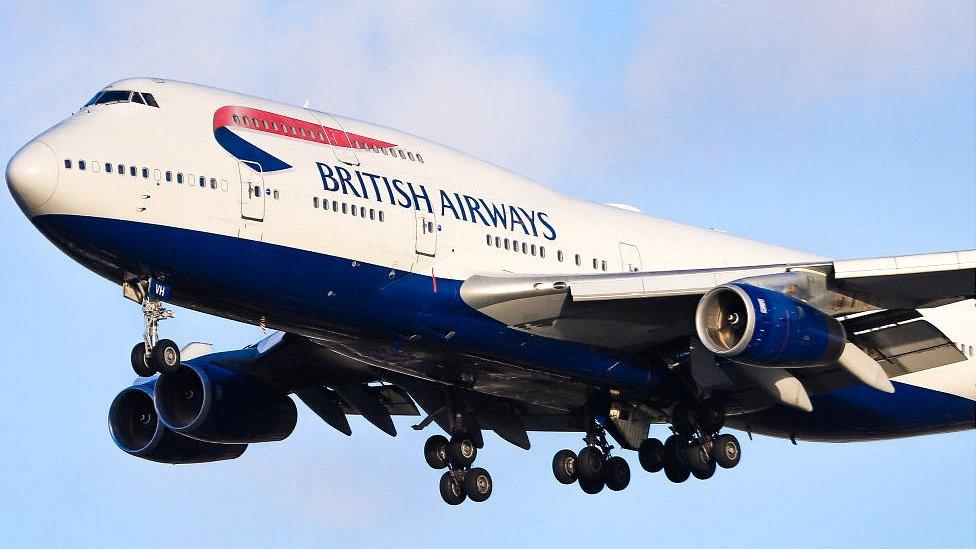
Two weeks ago, BA informed some customers they would have to re-book their flights due to the planned industrial action.
Unfortunately, due to "human error" the airline mistakenly sent emails to some customers whose flights were not actually affected, throwing BA's customer service operations into a tailspin over the bank holiday weekend.
On Friday, BA said the "vast majority" of affected customers had now either accepted a refund or rebooked, either on alternative dates or with other airlines.
What rights do passengers have if their flight is affected?
BA advice, external says you can request a full refund, rebook your flight for another time in the next 355 days, or use the value of your fare to fly to a different destination.
If your flight has been cancelled due to a strike, the Civil Aviation Authority says, external passengers also have a legal right to a replacement flight at BA's expense to get you to your destination, even if this means travelling with a different airline.
Most affected passengers would already have been in contact with BA, but they may not have considered additional costs, such as airport parking. They are advised to keep receipts for these extra costs, and BA said it would look at refunding them on a case-by-case basis.
The cost of separate hotel or accommodation bookings that cannot be used may need to be claimed from travel insurance.
- Published6 September 2019
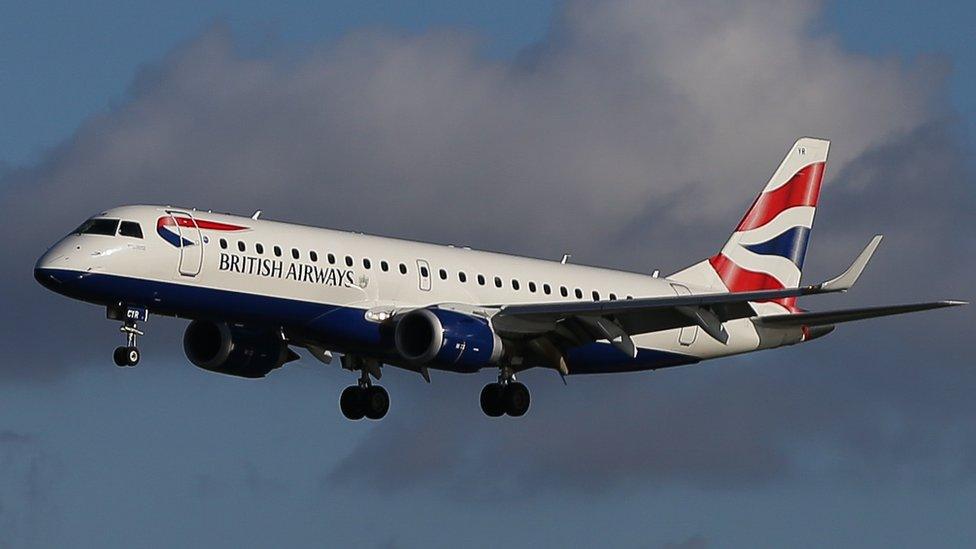
- Published4 September 2019

- Published25 August 2019

- Published24 August 2019
